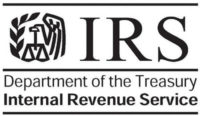A report issued three years ago by the Department of Treasury, Treasury Inspector General for Tax Administration (TIGTA), states that the IRS will begin to increase its audit of cannabis businesses throughout the country. The report, released on March 30, 2020, states that the IRS believes that most cannabis businesses have not accurately applied IRC 280E and as a result cannabis businesses could potentially owe hundreds of millions of dollars in outstanding taxes. This determination is based on an audit of tax filings of cannabis businesses in tax year 2016.
TIGTA conducted an audit of cannabis businesses in three different states, California, Colorado and Washington. Of the businesses audited, TIGTA determined, as a result of the incorrect application of IRC 280E, that 59% of those businesses required adjustments to their returns. These adjustments totaled over $48 million in unassessed taxes for 2016. The results of this audit caused the IRS to consider auditing cannabis businesses throughout the country where medical and/or adult use cannabis is sold. According to experts, cannabis (plant touching) businesses can expect an increase in tax returns to be audited now that the IRS has begun to increase their staffing resources and their ability to conduct most audits virtually.
Although the report calls for the IRS to develop guidance for the cannabis industry, the resources available are not very helpful nor does it provide the guidance that plant touching business owners need to make sure they are audit ready because audits have begun in Massachusetts, Michigan, Arizona, Oregon, Washington and Colorado.
 As a plant touching business owner, you need to be prepared for a potential audit of your tax returns. To be prepared you should have the right tools to help you perform cannabis accounting. You will need to implement sound policies and procedures.
As a plant touching business owner, you need to be prepared for a potential audit of your tax returns. To be prepared you should have the right tools to help you perform cannabis accounting. You will need to implement sound policies and procedures.
Preparation is Key
As a plant touching business owner, you should always be prepared for a potential audit whether by the IRS for IRC 280E compliance, or a financial state audit as a requirement by your investors. To prepare for an IRC 280E audit, you must first have an accounting and reporting system set up to perform accounting for your vertical – dispensary, cultivation or manufacturing business. This will include a chart of accounts for your business type because this is the foundation for your accounting system and help to track all transactions that are specific to your particular operation. It will simplify recordkeeping for recording revenue, inventory, cost of goods sold as well as direct and indirect labor costs. It will also help with maintaining your library of documentation that is tied to each transaction. The level of detail will enable you to perform accurate cost accounting as well as provide backup for how your accounting team arrived at their calculations. In addition to having a robust chart of accounts and a document library, you will also need to have written policies and procedures.
The 3 P’s – Policies, Procedures & Processes
The key to making sure you are always audit ready is to implement sound policies, procedures and processes. You want to make sure you have written accounting policies that provide guidance on how your business performs various accounting tasks. It should reflect requirements based on Generally Accepted Accounting Principles or could reference IRS requirements per IRC 280E and/or IRC 471-11. For example, you should have an accounting policy for how your organization values inventory which is important for plant touching businesses.
 You should also have Standard Operating Procedures (SOPs) that provide step by step instructions on how specific tasks are performed. This will make sure that everyone within your organization is performing the various tasks the same. Your SOPs should be for all key tasks within the organization, especially those tasks that affect how transactions are recorded in your accounting system. It ensures accuracy and reliability of your financial statements.
You should also have Standard Operating Procedures (SOPs) that provide step by step instructions on how specific tasks are performed. This will make sure that everyone within your organization is performing the various tasks the same. Your SOPs should be for all key tasks within the organization, especially those tasks that affect how transactions are recorded in your accounting system. It ensures accuracy and reliability of your financial statements.
Organizations should go a step further and create end-to-end business processes that go a step beyond SOPs. End-to-end processes are created from sequential steps that will allow auditors to follow each step to identify key controls, assess risks as well as potential fraud within an organization. Although having detailed end-to-end processes for your business is not a requirement, they do provide an extra layer of proof of the accuracy of your financial statements because you will have identified your key controls, mitigated potential risks associated with misstatements in your financial statements, and identified risks associated with fraud.
Although no one knows when or if their business will be audited, being prepared is the key to a less stressful and more successful audit. Being able to show an auditor items they may request but also having organized, easy to reference documentation that provides a detailed look at your accounting and reporting operations shows that you are serious about your business and you want to operate compliantly.






























